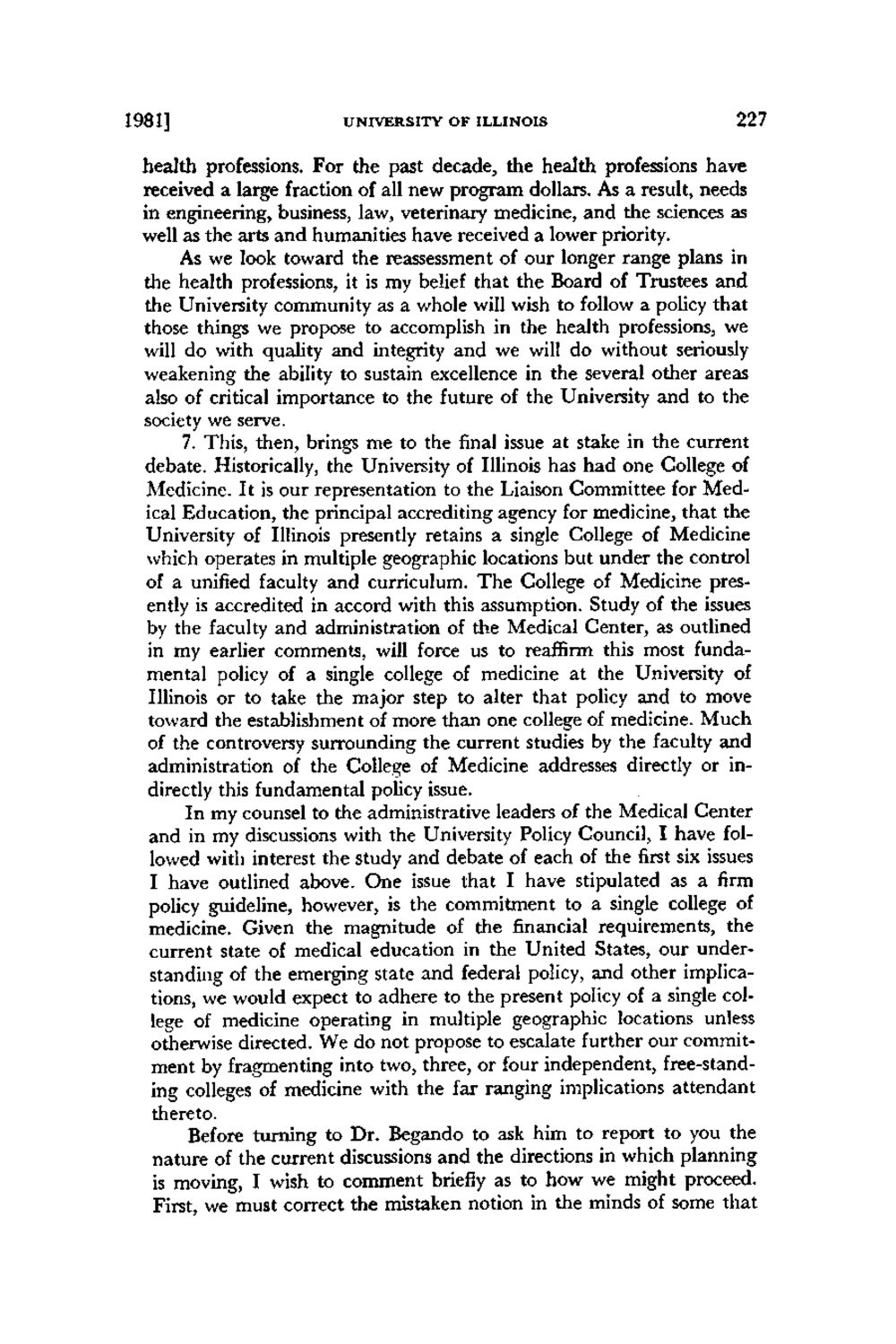| |
| |
Caption: Board of Trustees Minutes - 1982
This is a reduced-resolution page image for fast online browsing.

EXTRACTED TEXT FROM PAGE:
1981] UNIVERSITY OF ILLINOIS 227 health professions. For the past decade, the health professions have received a large fraction of all new program dollars. As a result, needs in engineering, business, law, veterinary medicine, and the sciences as well as the arts and humanities have received a lower priority. As we look toward the reassessment of our longer range plans in the health professions, it is my belief that the Board of Trustees and the University community as a whole will wish to follow a policy that those things we propose to accomplish in the health professions, we will do with quality and integrity and we will do without seriously weakening the ability to sustain excellence in the several other areas also of critical importance to the future of the University and to the society we serve. 7. This, then, brings me to the final issue at stake in the current debate. Historically, the University of Illinois has had one College of Medicine. It is our representation to the Liaison Committee for Medical Education, the principal accrediting agency for medicine, that the University of Illinois presently retains a single College of Medicine which operates in multiple geographic locations but under the control of a unified faculty and curriculum. T h e College of Medicine presently is accredited in accord with this assumption. Study of the issues by the faculty and administration of the Medical Center, as outlined in my earlier comments, will force us to reaffirm this most fundamental policy of a single college of medicine at the University of Illinois or to take the major step to alter that policy and to move toward the establishment of more than one college of medicine. Much of the controversy surrounding the current studies by the faculty and administration of the College of Medicine addresses directly or indirectly this fundamental policy issue. In my counsel to the administrative leaders of the Medical Center and in my discussions with the University Policy Council, I have followed with interest the study and debate of each of the first six issues I have outlined above. One issue that I have stipulated as a firm policy guideline, however, is the commitment to a single college of medicine. Given the magnitude of the financial requirements, the current state of medical education in the United States, our understanding of the emerging state and federal policy, and other implications, we would expect to adhere to the present policy of a single college of medicine operating in multiple geographic locations unless otherwise directed. We do not propose to escalate further our commitment by fragmenting into two, three, or four independent, free-standing colleges of medicine with the far ranging implications attendant thereto. Before turning to Dr. Begando to ask him to report to you the nature of the current discussions and the directions in which planning is moving, I wish to comment briefly as to how we might proceed. First, we must correct the mistaken notion in the minds of some that
| |